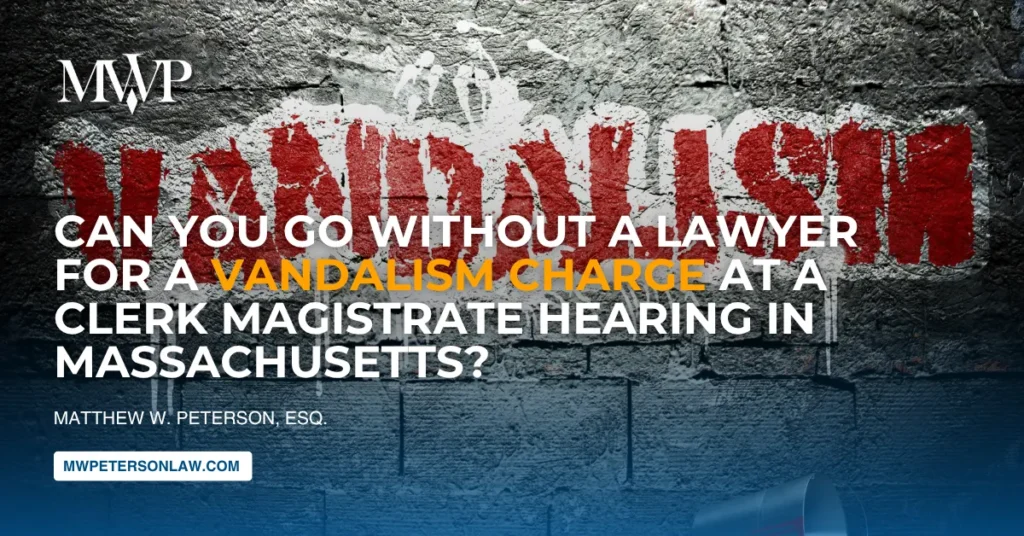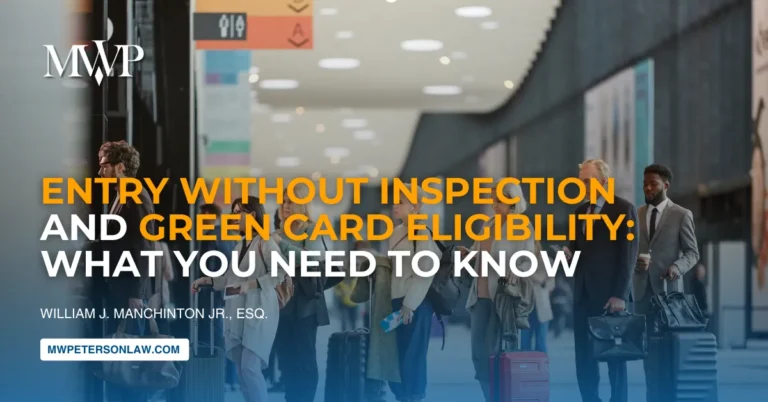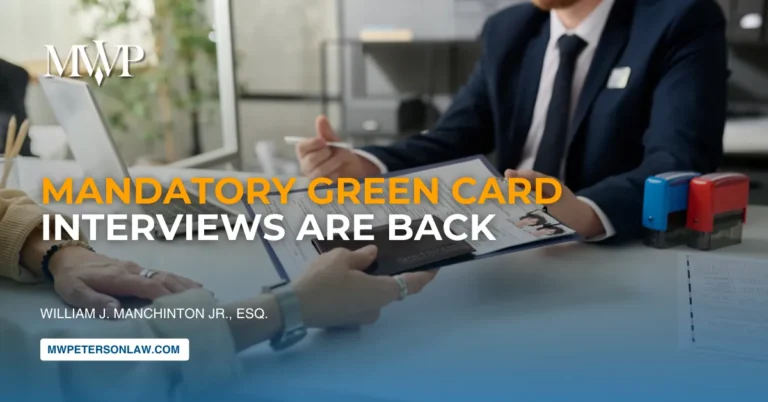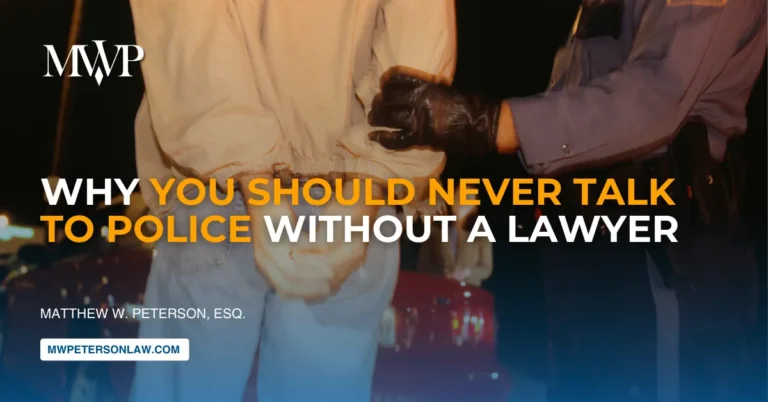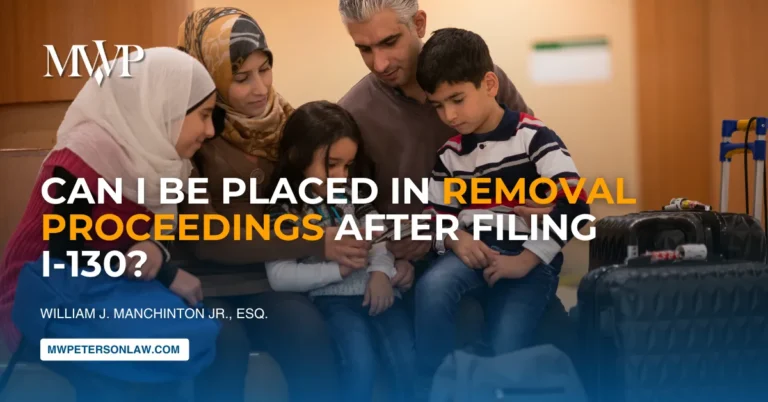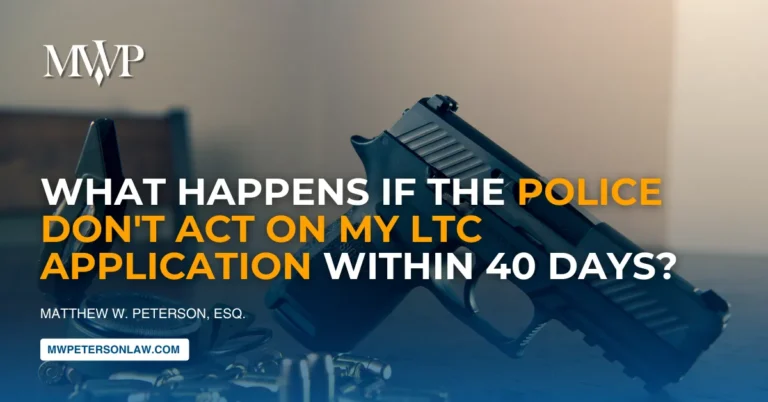If you’ve received a notice for a Clerk Magistrate’s Hearing on a vandalism charge in Massachusetts, you may be wondering whether you need a lawyer or if you can handle it yourself. While you “can” represent yourself, doing so is often a costly gamble. These hearings are usually your only chance to stop criminal charges before they hit your record — and losing here means facing prosecution in District Court.
What Happens at a Clerk Magistrate’s Hearing?
A Clerk Magistrate’s Hearing — also called a show cause hearing — is the court’s way of deciding if there’s enough probable cause to issue a criminal complaint. In vandalism cases, the police or prosecutor may present:
- Photos or video of the alleged damage
- Repair or replacement cost estimates
- Witness statements from property owners, neighbors, or bystanders
- Testimony from the responding officer
- Any statements you made at the scene or during questioning
If the Clerk Magistrate finds no probable cause, the case ends there. If probable cause is found, you’ll be arraigned in District Court, and the charge will immediately appear on your criminal record.
Why Representing Yourself Is Risky
Massachusetts law allows you to speak on your own behalf, but doing so without an attorney comes with serious risks:
- Anything you say can be used against you later. Even casual remarks can be treated as admissions in court.
- You may miss legal defenses. An attorney can challenge whether the damage qualifies as vandalism under G.L. c. 266, § 126A, or whether the Commonwealth can prove you were responsible.
- Procedural mistakes can hurt your case. Failing to object to improper evidence or introducing harmful testimony can make it easier for the charge to proceed.
Defense Strategies in Vandalism Cases
A skilled defense attorney at the Clerk Magistrate’s stage might prevent the case from issuing by:
- Arguing mistaken identity or a lack of direct evidence linking you to the damage
- Disputing intent — vandalism requires proof that the damage was willful or malicious
- Presenting evidence that the alleged damage was accidental or caused by someone else
- Offering restitution or repair agreements to resolve the matter informally before charges are issued
In many vandalism cases, lawyers can negotiate with the property owner or police to keep the matter out of court entirely.
Massachusetts Vandalism Laws and Penalties
Under Mass. Gen. Laws c. 266, § 126A, vandalism is a criminal offense that can result in:
- Up to three years in state prison or up to two and a half years in a house of correction.
- Fines of up to $1,500 or three times the value of the property damaged.
- Restitution orders to cover repair or replacement costs.
- A permanent criminal record can impact jobs, housing, and education opportunities.
Because even a minor vandalism charge can have long-term consequences, the Clerk Magistrate’s Hearing is a crucial chance to stop the case before it begins.
The Bottom Line
While you can represent yourself at a Clerk Magistrate’s Hearing for a vandalism charge in Massachusetts, you almost certainly shouldn’t. This is your best opportunity to keep a criminal complaint — and a damaging permanent record — from being filed at all. An experienced Boston criminal defense attorney can protect your rights, negotiate resolutions, and often stop the case before it starts. Contact us now to set up a strategy session and safeguard your future.
Frequently Asked Questions (FAQ)
If I pay for the damage before the hearing, will the case be dropped?
Sometimes. If the property owner is satisfied and agrees to resolve the matter, the Clerk may dismiss the complaint, but a lawyer is often essential to negotiating this outcome.
Do I have to testify at the hearing?
No, and in most cases, it’s better not to. Your lawyer can speak for you and prevent harmful admissions.
What if there’s no witness who actually saw me cause the damage?
Lack of direct evidence can be a strong defense, but the Commonwealth may try to rely on circumstantial evidence — something a lawyer can challenge effectively.
Can I bring my own witnesses?
Yes, but without a legal strategy, you may call witnesses whose testimony unintentionally helps the prosecution.
What happens if probable cause is found?
You’ll be arraigned in District Court, the charge will go on your record, and the case will proceed toward trial or plea negotiations.

